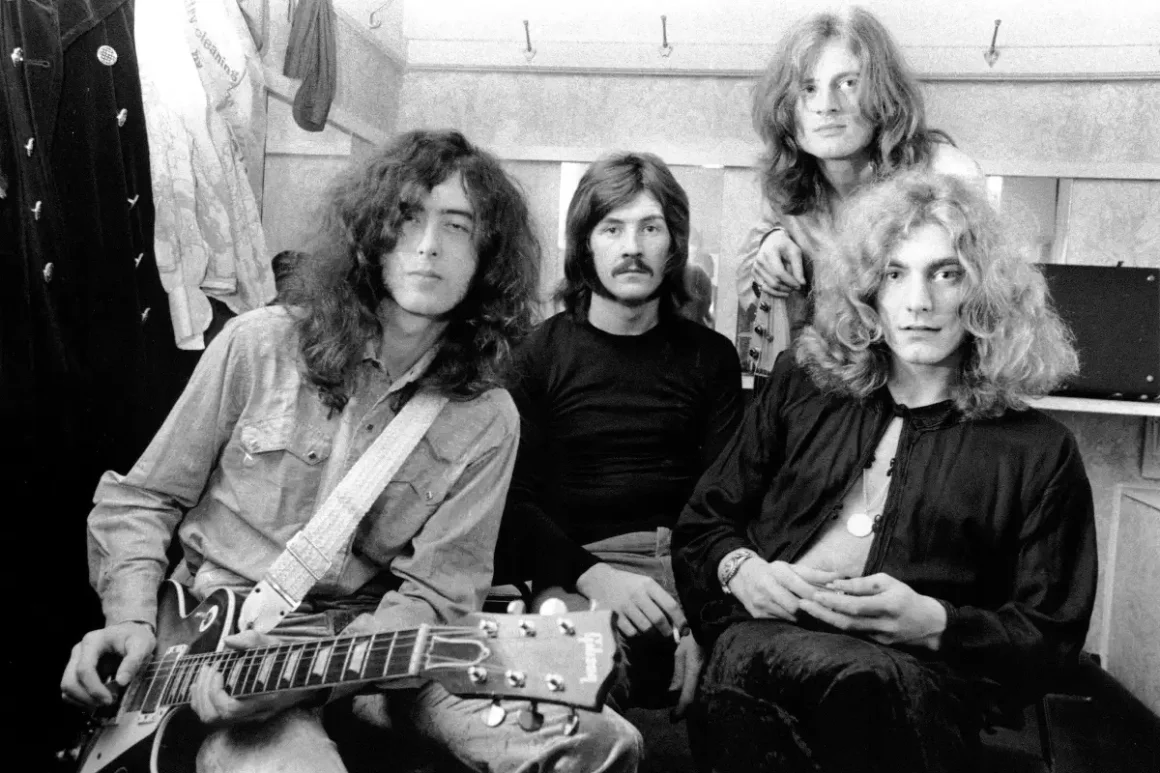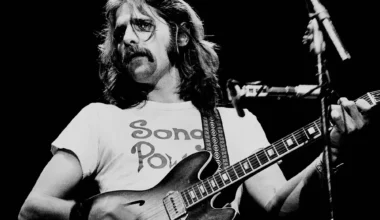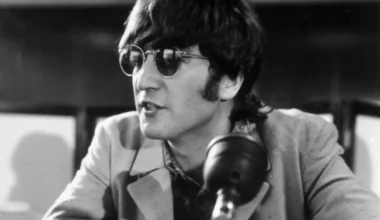Jimmy Page left his previous band, The Yardbirds, and went on to form Led Zeppelin in 1968. He hired three masters in their respective genres—Robert Plant, front and center; John Paul Jones, bass and keyboards; and John Bonham, drum kit. His discernment for musical ability and rock ‘n’ roll spirit was evident.
In the end, all four of them emerged as vital components of the Led Zeppelin chain. However, Page would have surely considered the band as a beast of his invention during its early ascent to fame. Because of this, when John Bonham passed away tragically in 1980, the band felt there was no way they could move on together.
The band announced their decision to disband due to the tragic loss of their dear friend. The deep respect for his family and undivided harmony with our manager compelled us to discontinue as we were.
Led Zeppelin was a well-oiled machine that pulled in the same direction most of the time. However, sometimes, one member would steer the material in a different direction. As the original frontman of the group, Page usually took the compositional lead, letting Plant handle the ideas.
However, bassist John Paul Jones recalled carrying a big part of the workload in the late 1970s when the group was recording their last album, In Through the Out Door. In a 1991 interview with Ritchie Yorke, Jones recalled, “It just seemed that Robert and I got to rehearsals first. We basically wrote the album, just the two of us.”
John [Bonham] and I were left alone quite a bit, so we tended to get on with things, I believe. The bassist went on, “I guess you could say that In Through The Out Door is my album, the way Presence was Jimmy’s album.”
These later albums bore the hallmarks of the members’ growing disharmony. But from the beginning, they were a cohesive team, occasionally drawing compositional inspiration from their luminaries. The 1968 debut of Led Zeppelin earned its notoriety partly due to their scorching rendition of Willie Dixon’s “I Can’t Quit You Baby.”
While Page’s guitar work on these early albums drew heavily from Chuck Berry’s style, the songwriter deservedly received credit for this particular cover.
“There is a pedal steel on the first LP,” Page said in a 1977 interview with Guitar Player. “I recently picked up steel, though I had never played it before. Many things that I do for the first time are things I have never done before. In actuality, between the first and the third album, I had not touched pedal steel. Really, it’s a bit of a pinch considering what Chuck Berry did. Still, it works. In the song “Your Time Is Gonna Come,” I play pedal steel. It sounds a bit like a slide. I didn’t have a kit to put the first album together, so it’s more out of tune.
Below, you can hear Jimmy Page’s initial pedal steel guitar experiments in the song “Your Time Is Gonna Come.”








